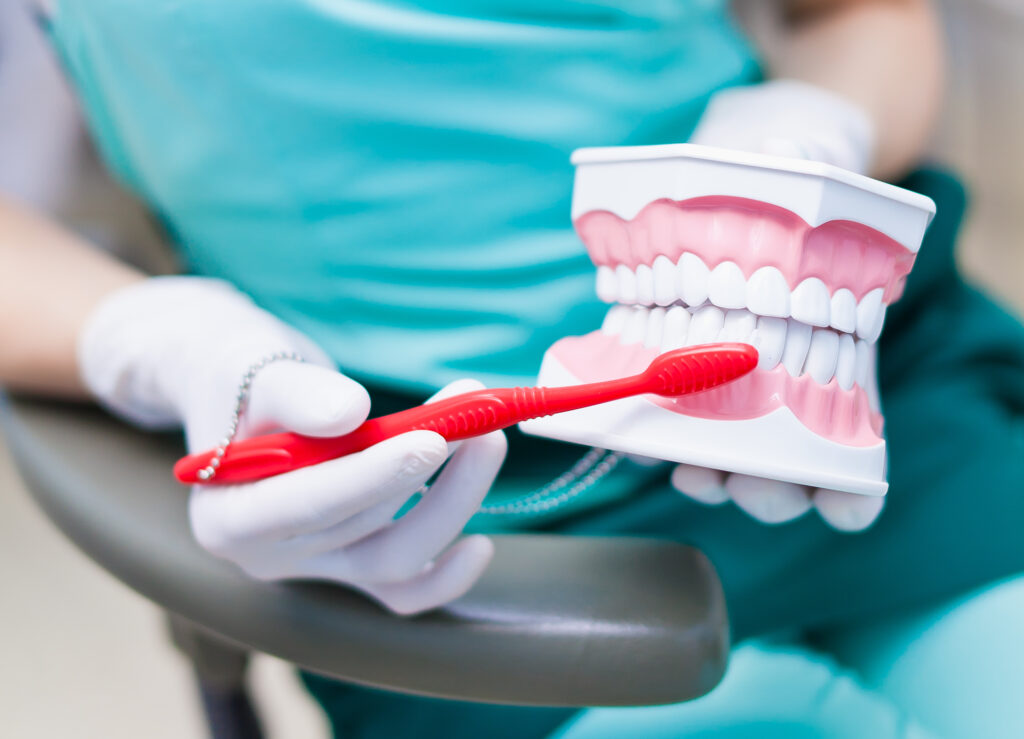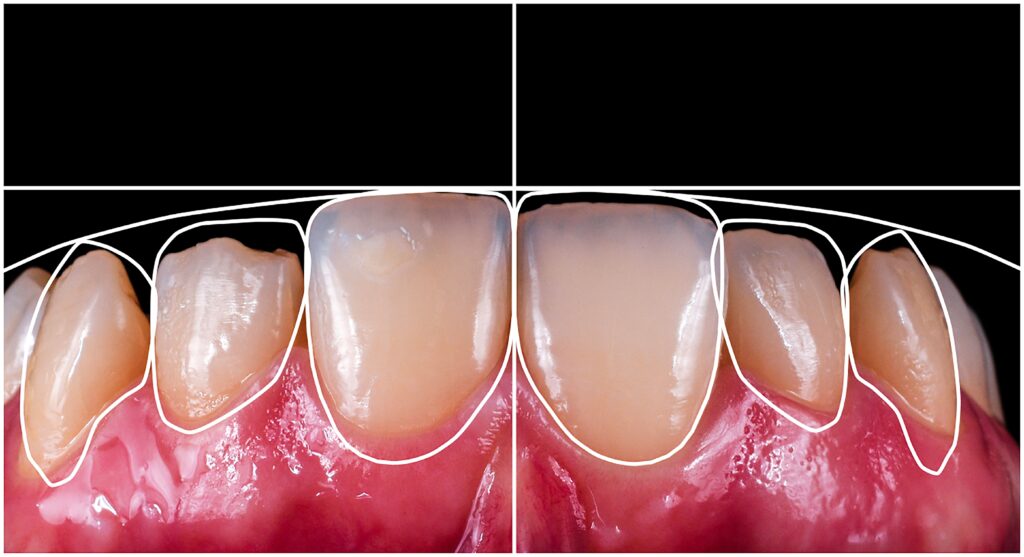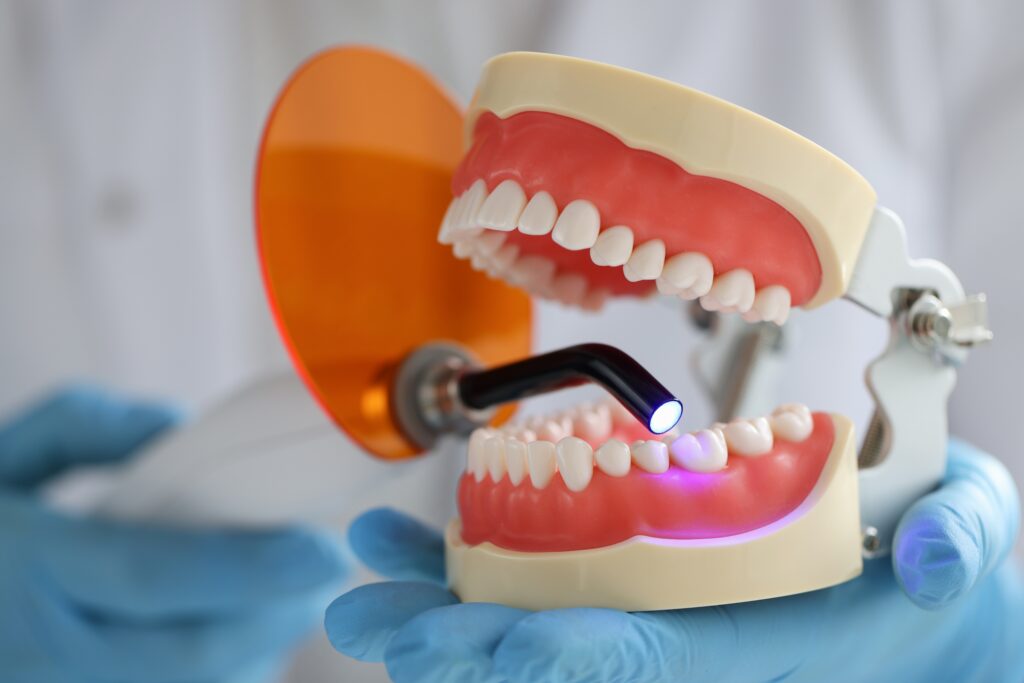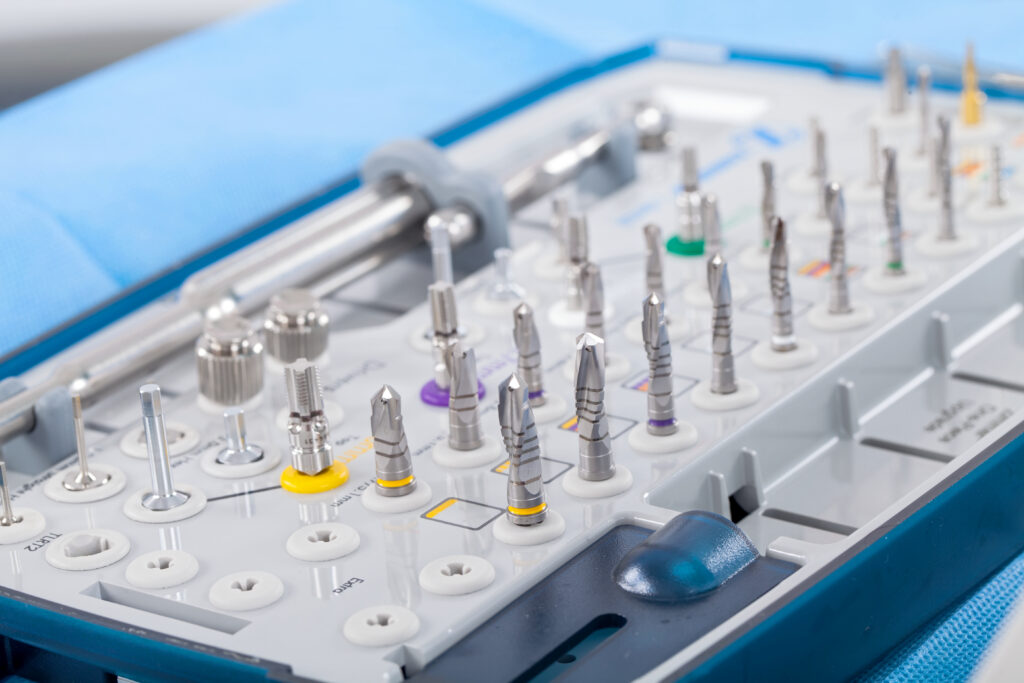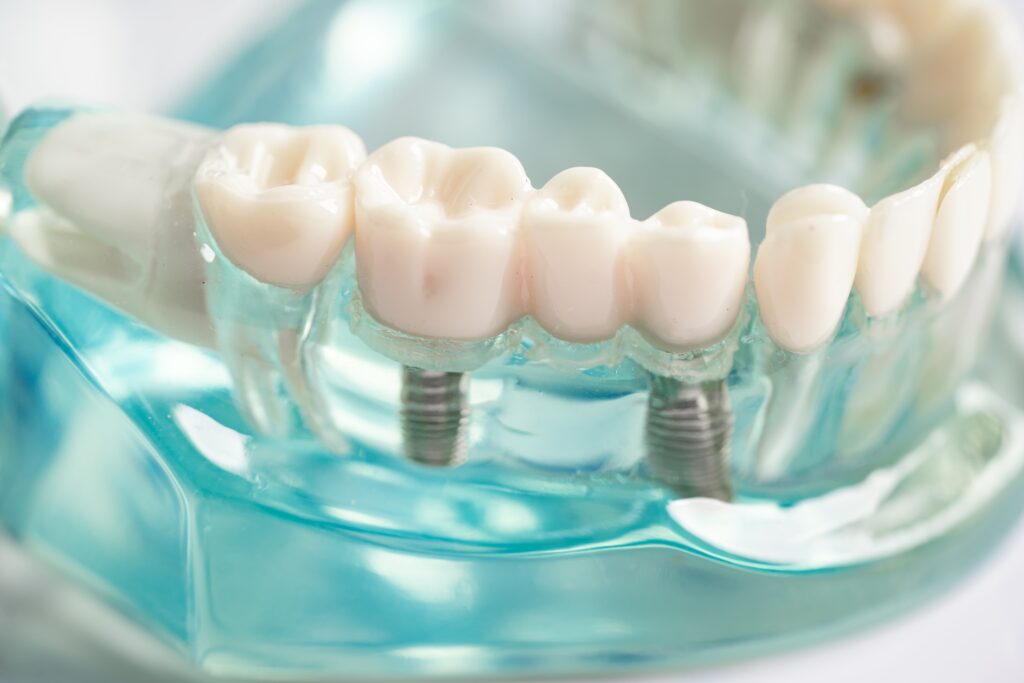Dental Implant
TREATMENTS
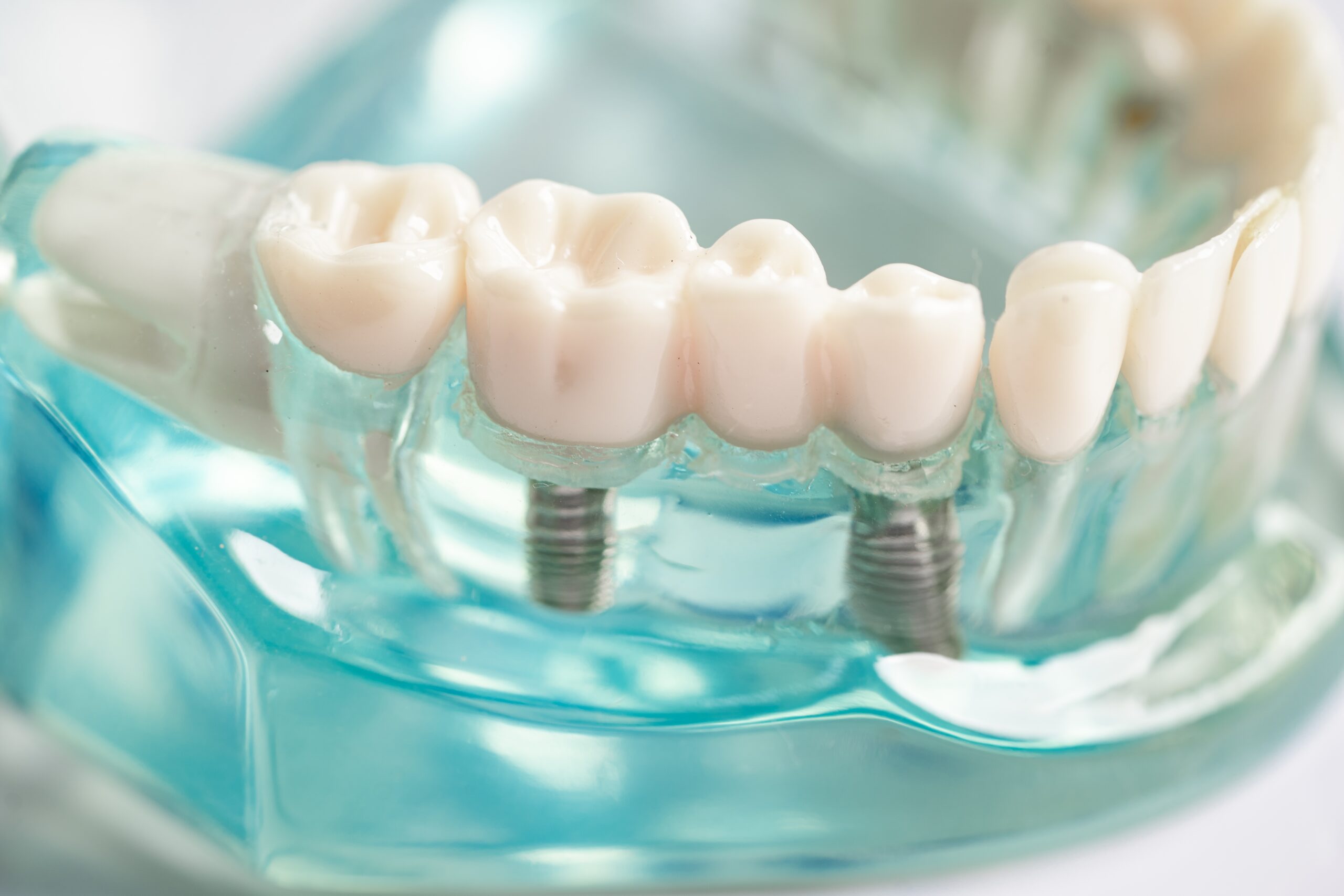
Dental implants are an effective treatment method for replacing missing teeth with new teeth. First, a titanium screw is surgically inserted into the jawbone. This screw, called an implant, fuses to the bone after a process called osseointegration and acts as an artificial tooth root, providing support for the crown or bridge to be built on it.
The stages of dental implant treatment are as follows:
- Initial examination: At this stage, your dentist will perform an oral and dental examination to determine whether you are suitable for dental implants. It may be necessary to take X-rays or 3-dimensional tomography images to see your bone density and thickness.
- Treatment planning: Based on the results of the examination, your dentist will create a treatment plan tailored to your needs. This plan includes the number of implants required, the type of superstructure (crown, bridge, prosthesis) and the duration of the treatment.
- Implant placement: This is the stage where the titanium implant is surgically placed in the jawbone. It is usually performed under local anesthesia. After the surgery, a healing process of several months is expected for the implant to firmly fuse to the bone.
- Abutment placement: After osseointegration is complete, a small connecting piece called an abutment is attached to the implant. This piece is above the gingival level and forms the attachment point for the artificial tooth.
- Placement of the restorative superstructure: Finally, the artificial tooth, which has been specially prepared for the patient, is attached to the abutment. Since the shape, size and color of this artificial tooth is the same as your own teeth, you will have a natural smile and an ideal function.
Dental implant treatment is only completed within months as the screw is expected to fuse to the bone. However, in the end, you will have a durable artificial tooth that looks and functions like a natural tooth without damaging your other teeth.
In dental implant treatment, it is very important to have a very good oral care habit and to go for regular dental examinations in order to maintain oral health and the stability of the implants. In addition, not every patient may be suitable for dental implant treatment. For this reason, you should definitely be examined by your dentist before deciding on implant treatment.
